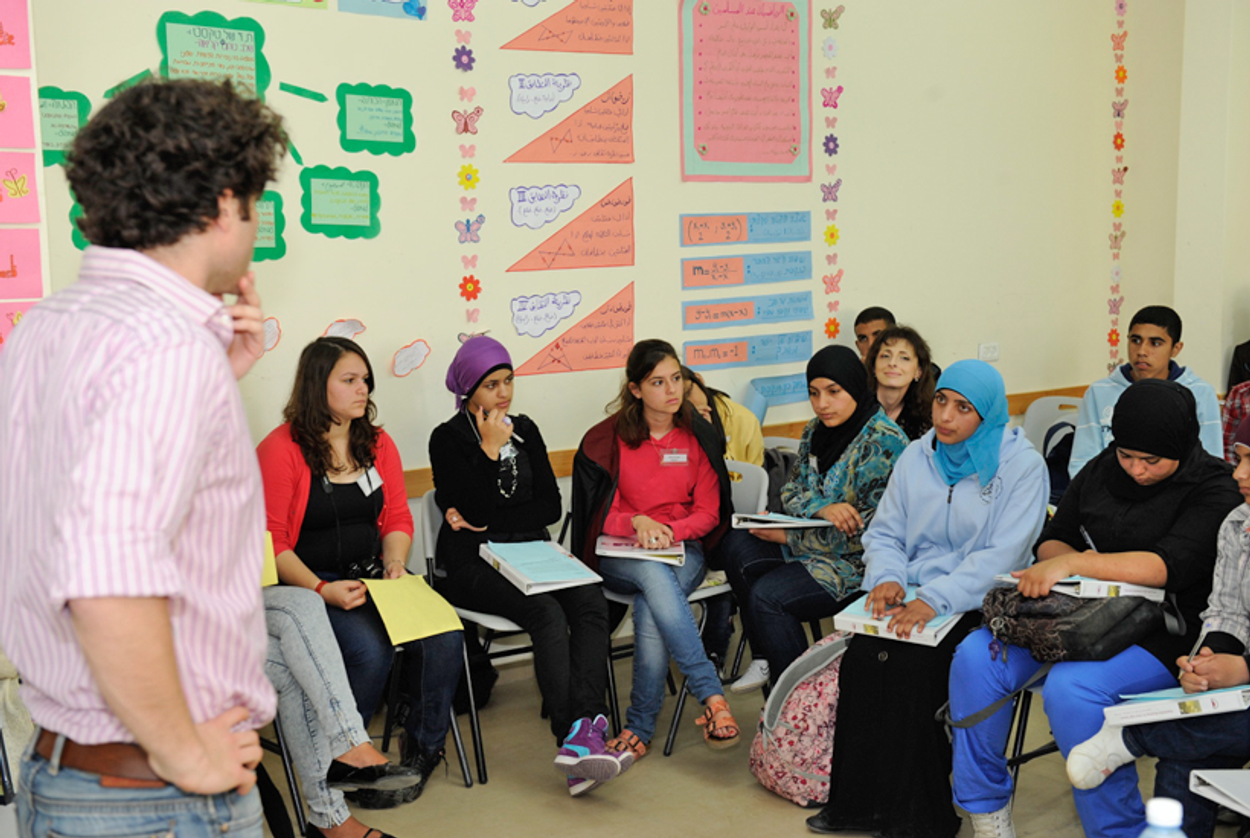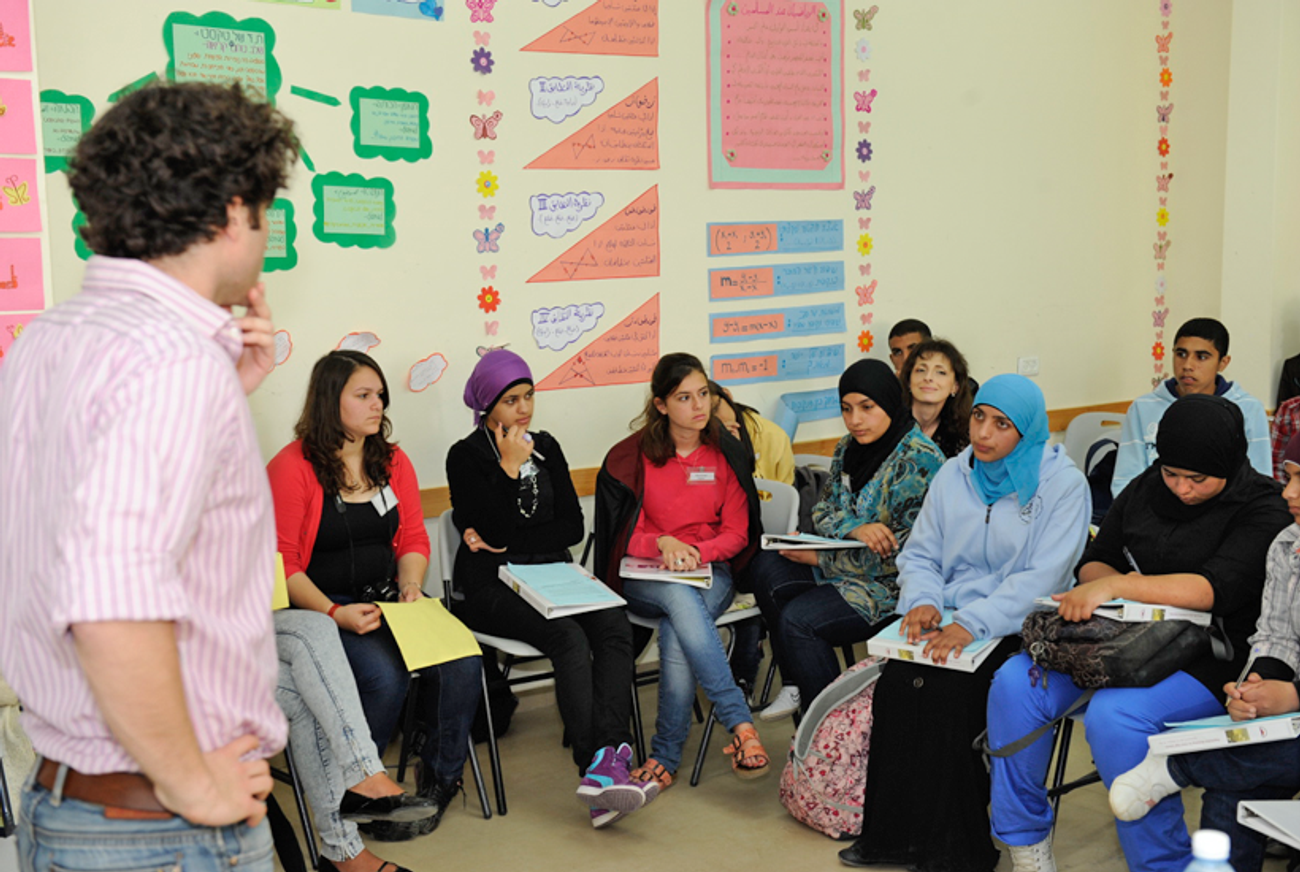Trouble Getting Into College? It Might Be the Language You Speak
Israeli study finds Arabic detrimental to standardized testing, which adds to an already fraught educational landscape




As if being a member of an underprivileged minority group and trying to get into college wasn’t stressful enough, a new research by the Israeli National Institute for Testing & Evaluation, the local equivalent of the American College Board, and Haifa University revealed that Israeli Arabs taking the Psychometry, the standardized test required to gain admission to most institutions of higher learning in Israel, scored significantly lower than their Jewish counterparts, receiving on average 100 points less out of a possible 800. The reason? They speak Arabic.
Arabic, as Prof. Raphiq Ibrahim of Haifa University pointed out, is a diglossic language, which means that it requires its speakers to command two dialects, the one, known as standard Arabic, consisting mostly of everyday vernacular, and the other, literary Arabic, highly formalized and used mainly in texts and higher education but rarely in casual settings. This, Ibrahim’s research has shown, effectively means that from a cognitive perspective, standard Arabic registers as one’s native tongue whereas literary Arabic is perceived and experienced as a second language, more elusive and harder to command.
In and of itself, this is not necessarily a disadvantage. But as Psychometry tests for native Arabic speakers are conducted entirely in literary Arabic, this means that students are required not only to answer the questions at hand but also to translate them first from one dialect to another, which is more or less equivalent to American high-school students being asked to take their SATs entirely in French. And if that wasn’t difficult enough, Arabic orthography—its visual appearance, grammar, and punctuation—is considerably more complicated than its Hebrew counterpart, slowing things down even further in a test limited by a short amount of time.
To measure these linguistically imposed hurdles accurately, Ibrahim and his fellow researchers required 119 students to read texts both silently and out loud. About half of the subjects were native Hebrew speakers who were given standard texts in Hebrew, and the other half were native Arabic speakers who received Arabic texts. The latter group took seven seconds longer on average to read 200 words out loud, and more than 16 seconds longer to read the same amount in silence. No further cognitive or socioeconomic differences were discernible to explain away these differences.
This latest finding joins a host of other inherent conditions that make introducing more Israeli Arab students to colleges and universities a daunting task. Currently, Israeli Arabs make up more than 20 percent of the population but only 9.8 percent of students at institutions of post-secondary education, an imbalance the Israeli government is committed to correcting: in 2012, it pledged NIS 300 million, or more than $80 million, to promote minority attendance in higher education programs. At least part of that money goes to a program titled “A Step Before Everyone,” which invites minority students on campus two months before the start of the academic year for an in-depth orientation that includes booster classes in Hebrew, the official language of most classes, as well as the fundamentals of academic culture. In addition, each Israeli academic institution has received more than $2,600 to translate its website into Arabic.
Despite the good will and the initial helpful measures, however, major hurdles still stand in the way of boosting Israeli Arab higher education. Some are structural: On average, 32 percent of Israeli Arab children drop out of high school, compared with only 8 percent among Israeli Jews, and only 33 percent receive their bagrut, or matriculation, certificate, which is a requirement for attending university; among Jews, the number is 53 percent. These numbers, most experts agree, are the result of an ongoing discrimination that reflects the Israeli educational system’s inherent socioeconomic biases. According to the system’s current structure, greater budgets are allocated to those schools that offer students a wide array of services and facilities like computer and science labs, which means that wealthier local authorities that can afford greater investments in infrastructure receive far more financial support from the Ministry of Education than their poorer counterparts. This is why a student in Kiryat Shmona, for example, receives an average of NIS 32,900, or $8,735, while a student in the large Arab village of Taibe receives NIS 18,000, or $4,779, and a student in the largely haredi town of Bnei Brak receives only NIS 15,100, or $4,009. Subsequent Israeli governments have taken some measures to address these dramatic budgetary discrepancies, but Israeli Arab students still receive far less material support, are crammed into more populated classrooms, and have less access to resources, like technology, that are increasingly crucial to excelling in higher education.
Cultural differences, too, contribute to the difficulties of obtaining a college education. Israeli Arab society, studies have shown, places an overall high premium on education, but the lack of appropriate academic role models among older—and, frequently, less educated—adults and traditional family structures that often discourage women in particular from following their academic aspirations are both detrimental. Also, even Arab students who do make it to university often arrive with very strong ambitions and a desire to study highly competitive subjects like medicine or computer science, adding to an already stressful situation.
These challenges are significant, and some, most likely, will be left without adequate response. But Israeli society has few greater undertakings more pressing and more potentially rewarding than continuing to encourage its Arab citizens to find their place in more and more university and college classrooms.
***
Like this article? Sign up for our Daily Digest to get Tablet Magazine’s new content in your inbox each morning.
Liel Leibovitz is a senior writer for Tablet Magazine and a host of the Unorthodox podcast.
Liel Leibovitz is editor-at-large for Tablet Magazine and a host of its weekly culture podcast Unorthodox and daily Talmud podcast Take One. He is the editor of Zionism: The Tablet Guide.